Dacia Jogger vs VW Caddy - Differences and prices compared
Compare performance (140 HP vs 150 HP), boot space and price (15400 £ vs 27800 £) at a glance. Find out which car is the better choice for you – Dacia Jogger or VW Caddy?
Costs and Efficiency:
Price and efficiency are key factors when choosing a car – and this is often where the real differences emerge.
Dacia Jogger has a decisively advantage in terms of price – it starts at 15400 £, while the VW Caddy costs 27800 £. That’s a price difference of around 12339 £.
Fuel consumption also shows a difference: VW Caddy manages with 0.50 L and is therefore convincingly more efficient than the Dacia Jogger with 4.70 L. The difference is about 4.20 L per 100 km.
Engine and Performance:
Under the bonnet, it becomes clear which model is tuned for sportiness and which one takes the lead when you hit the accelerator.
When it comes to engine power, the VW Caddy has a slight edge – offering 150 HP compared to 140 HP. That’s roughly 10 HP more horsepower.
In acceleration from 0 to 100 km/h, the Dacia Jogger is a bit quicker – completing the sprint in 9.80 s, while the VW Caddy takes 11.40 s. That’s about 1.60 s faster.
In terms of top speed, the VW Caddy performs minimal better – reaching 186 km/h, while the Dacia Jogger tops out at 174 km/h. The difference is around 12 km/h.
There’s also a difference in torque: VW Caddy pulls distinct stronger with 320 Nm compared to 200 Nm. That’s about 120 Nm difference.
Space and Everyday Use:
Cabin size, boot volume and payload all play a role in everyday practicality. Here, comfort and flexibility make the difference.
Both vehicles offer seating for 7 people.
In curb weight, Dacia Jogger is clearly perceptible lighter – 1251 kg compared to 1575 kg. The difference is around 324 kg.
In maximum load capacity, the VW Caddy performs convincingly better – up to 3700 L, which is about 1881 L more than the Dacia Jogger.
When it comes to payload, VW Caddy somewhat takes the win – 710 kg compared to 582 kg. That’s a difference of about 128 kg.
Who comes out on top?
Overall, the VW Caddy shows itself to be outperforms in nearly all aspects and secures the title of DriveDuel Champion.
It convinces with the more balanced overall package and proves to be the more versatile choice for everyday use.
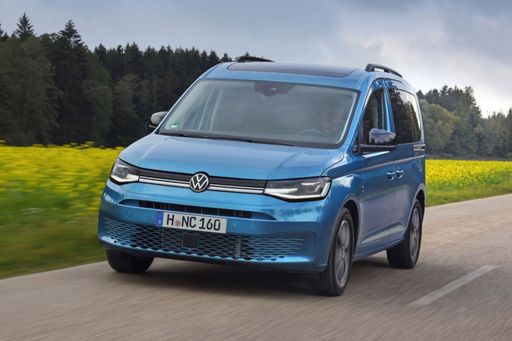
VW Caddy
Costs and Consumption
View detailed analysis
Engine and Performance
View detailed analysis
Dimensions and Body
View detailed analysis
Dacia Jogger
The Dacia Jogger is a no-nonsense family mover that stretches the idea of value with cavernous practicality and flexible space, perfect for buyers who need a sensible, everyday Swiss Army knife on wheels. It doesn’t try to be glamorous — instead it wins hearts with cheerful thrift, durable materials and honest engineering, giving you useful transport without the pretence.
details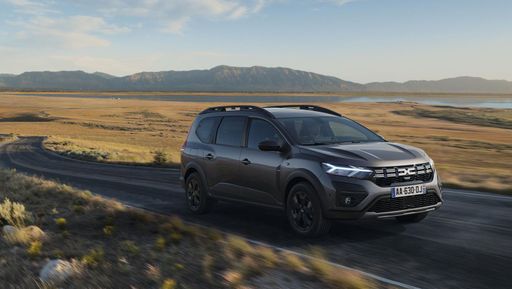
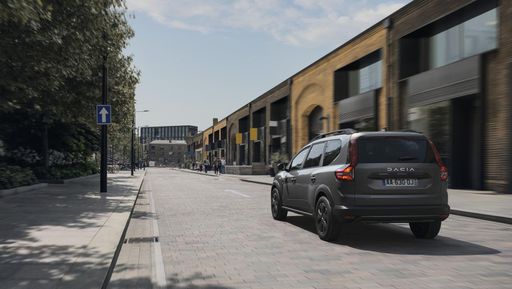
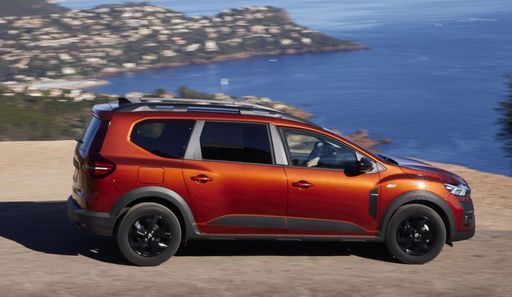
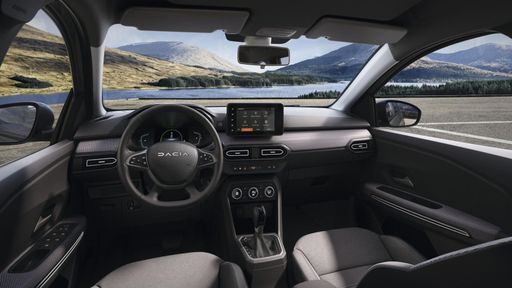
VW Caddy
The VW Caddy is the Swiss-army knife of compact vans — practical, surprisingly refined, and ready to swap a weekend adventure for a grocery run without breaking a sweat. It’s user-friendly, comfortable enough for daily driving, and sensible for buyers who want utility with a dash of style and no drama.
details
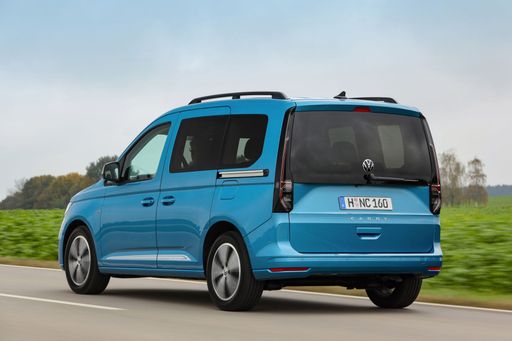
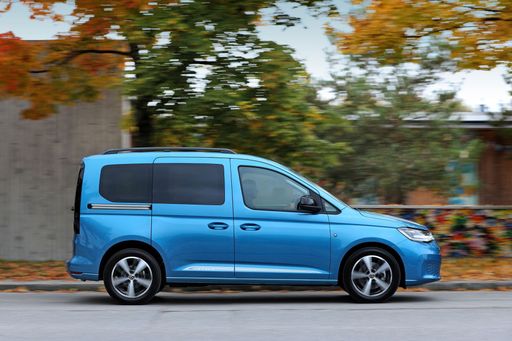
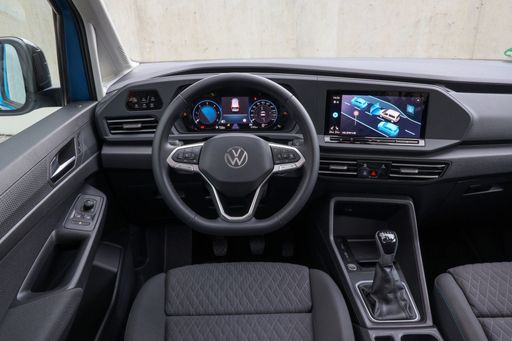

|

|
|
|
|
Costs and Consumption |
|
|---|---|
|
Price
15400 - 23400 £
|
Price
27800 - 45900 £
|
|
Consumption L/100km
4.7 - 7.8 L
|
Consumption L/100km
0.5 - 6.9 L
|
|
Consumption kWh/100km
-
|
Consumption kWh/100km
-
|
|
Electric Range
-
|
Electric Range
116 - 121 km
|
|
Battery Capacity
0.60 kWh
|
Battery Capacity
19.70 kWh
|
|
co2
105 - 137 g/km
|
co2
10 - 165 g/km
|
|
Fuel tank capacity
40 - 50 L
|
Fuel tank capacity
50 L
|
Dimensions and Body |
|
|---|---|
|
Body Type
MPV
|
Body Type
High Roof Estate
|
|
Seats
5 - 7
|
Seats
5 - 7
|
|
Doors
5
|
Doors
5
|
|
Curb weight
1251 - 1460 kg
|
Curb weight
1575 - 1998 kg
|
|
Trunk capacity
160 - 607 L
|
Trunk capacity
-
|
|
Length
4547 mm
|
Length
4500 - 4853 mm
|
|
Width
1784 mm
|
Width
1855 mm
|
|
Height
1674 mm
|
Height
1819 - 1860 mm
|
|
Max trunk capacity
1807 - 1819 L
|
Max trunk capacity
2556 - 3700 L
|
|
Payload
393 - 582 kg
|
Payload
501 - 710 kg
|
Engine and Performance |
|
|---|---|
|
Engine Type
Full Hybrid, LPG, Petrol
|
Engine Type
Petrol, Diesel, Plugin Hybrid
|
|
Transmission
Automatic, Manuel
|
Transmission
Manuel, Automatic
|
|
Transmission Detail
Automatic Gearbox, Manual Gearbox
|
Transmission Detail
Manual Gearbox, Dual-Clutch Automatic
|
|
Drive Type
Front-Wheel Drive
|
Drive Type
Front-Wheel Drive, All-Wheel Drive
|
|
Power HP
91 - 140 HP
|
Power HP
102 - 150 HP
|
|
Acceleration 0-100km/h
9.8 - 13.2 s
|
Acceleration 0-100km/h
11.4 - 14 s
|
|
Max Speed
167 - 174 km/h
|
Max Speed
173 - 186 km/h
|
|
Torque
160 - 200 Nm
|
Torque
220 - 320 Nm
|
|
Number of Cylinders
3 - 4
|
Number of Cylinders
4
|
|
Power kW
67 - 103 kW
|
Power kW
75 - 110 kW
|
|
Engine capacity
999 - 1598 cm3
|
Engine capacity
1498 - 1968 cm3
|
General |
|
|---|---|
|
Model Year
2024 - 2025
|
Model Year
2024
|
|
CO2 Efficiency Class
C, D
|
CO2 Efficiency Class
E, F, B
|
|
Brand
Dacia
|
Brand
VW
|
What drivetrain options does the Dacia Jogger have?
The Dacia Jogger is offered with Front-Wheel Drive.
The prices and data displayed are estimates based on German list prices and may vary by country. This information is not legally binding.
